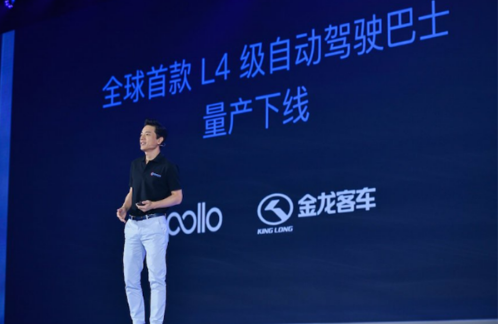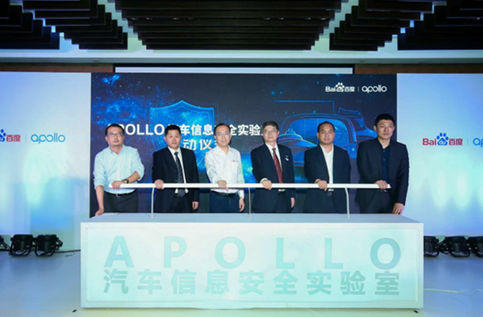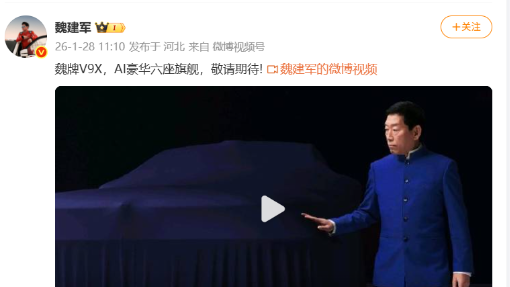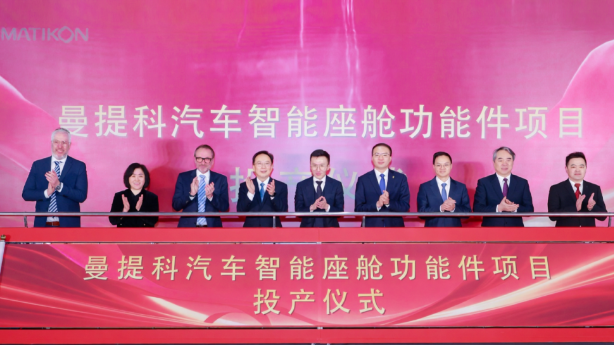
Shanghai (Gasgoo)-Chinese Internet giant Baidu achieved a blooming second quarter with revenues surging 32% year on year to RMB 26 billion and net profits jumping 31% over the previous year to RMB 6.4 billion, according to the unaudited financial results for the second quarter released by the company.
“As for the Apollo business, we teamed up with King Long and Neolix Technology and launched two L4 autonomous commercial vehicles. These powerful businesses demonstrated that we have the capability to focus on and implement our strategy to reinforce Baidu's foundation in mobility area and lead the AI era,” said Robin Li, chairman and CEO of Baidu.
Apollo has garnered 119 OEMs, Tier 1 parts suppliers and other partners, adding recently Jaguar Land Rover, Byton, Valeo, ADI, Flextronics, Suning, and Lionbridge, etc.

At Baidu Create 2018 on July 4, Robin Li announced that the world's first mass-produced L4 autonomous mini bus “Apolong” developed by Baidu Apollo in collaboration with King Long had already rolled off the production line at its manufacturing facility in Xiamen. The company said the “Apolong” mass-produced buses will be sent to several Chinese cities for commercial use, including Beijing, Xiongan New Area, Shenzhen, Pingtan and Wuhan, etc. Besides, Baidu has joined hands with King Long and SB Drive, the autonomous driving subsidiary of Japan's SoftBank Group, to export Apolong autonomous mini buses to Japan in early 2019. Moreover, the Apollo-powered L4 micro-car for cargo delivery launched by Neolix Technology has already been put into mass production.

During Chinese Premier Li Keqiang's visit to Germany last month, Baidu and German premium automaker BMW Group signed a Memorandum of Understanding (MoU) on July 10, under which the BMW Group will join the Apollo as a board member. Under the MoU, both companies will join forces to provide safe, convenient and smart mobility services for consumers in China. Previously, BMW China and Baidu had signed an agreement at the CES Asia 2018 to cooperate in home-to-vehicle field and explore the new-generation human-vehicle interaction modes.

The latest agreement signed with Daimler AG to cement their cooperation in autonomous driving and connectivity domains caught the eye of both Internet and automotive industries. In accordance with the newly signed agreement, both companies will continue to improve scenarios complexity both on approved public roads and dedicated designated grounds, making safety a priority. In addition, the two parties also planned to launch a new joint project in vehicle connectivity, integrating further Baidu connectivity services into Mercedes-Benz User Experience (MBUX), the intelligent human-machine interaction system.

During the process to speed up the mass production of autonomous driving products, Baidu has not ignored the significance of safety. On April 19, Baidu joined hands with China Automotive Technology & Research Center and the China Academy of Information and Communications Technology to set up the Apollo Vehicle Cybersecurity Lab. On July 4, Baidu released the Apollo Pilot Safety Report, China's first safety report on autonomous driving for volume production, which serves to help define the safety framework for the industry.

The Apollo has been executing the trial operations of its autonomous vehicles around China. On May 14, Baidu started road tests for fully autonomous L4 vehicles in Xiongan New Area, Hebei Province. What's more, the Internet giant and Panda Auto, an EV rental operator under the Chongqing-based automaker Lifan Group, jointly launched the China's first shared autonomous vehicle pilot program in Chongqing on May 24.








